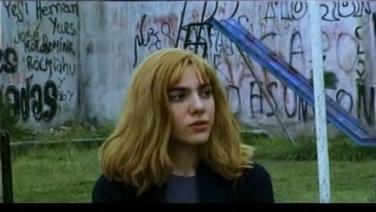
Los rubios (The blonds), Albertina Carri, Argentina, 2003, 90 minutes
One of the key moments of the 2017 Tabakalera cinema programme was the premiere in our cinema of the film Cuatreros by Albertina Carri. We wrote about that film that its images and sounds ride on the back of the personal archive, memory, first-hand experience and history of the director and the history of Argentina. Carri, the daughter of parents who disappeared during the dictatorship, found a book written by her father, reflected on her heritage – both political and emotional – and “went riding”, as if we were in a film about the Wild West, in search of her voice as a director.
But everything began much earlier – fourteen years earlier, in fact – with the premiere of her first feature, Los rubios, a film that had a huge impact on the cinema that reviewed the historical memory of Argentina.
Los rubios is a quest and a labyrinth: it is a film essay that delves into the family memory of the director to unravel the meaning of the absence of a father (Roberto Carri) and a mother (Ana María Caruso) who one day disappeared forever. It is a documentary that plays with all the cinematographic tools at its disposal: fragments, stories, rumours, trips, stories, photographs, recreations, doubts and mirrors. And it is not afraid to show its seams and tricks, its artificiality, in an attempt to reach the unnameable, the invisible, the horror. And so we find ourselves with a filming team adrift, with an actress acting as director or with an animation of Playmobil figures solving what nobody has ever been able to solve before.
This is a film about memory, and as such, the director herself dares to ask the questions: Who were the Carris? How did they disappear? Were they blond, dark, tall, revolutionary, parents, mothers, children, activists, heroes, true or part of a fiction of a director trying to remember?
This is a film about memory, and as such, the director herself dares to ask the questions: Who were the Carris? How did they disappear?
